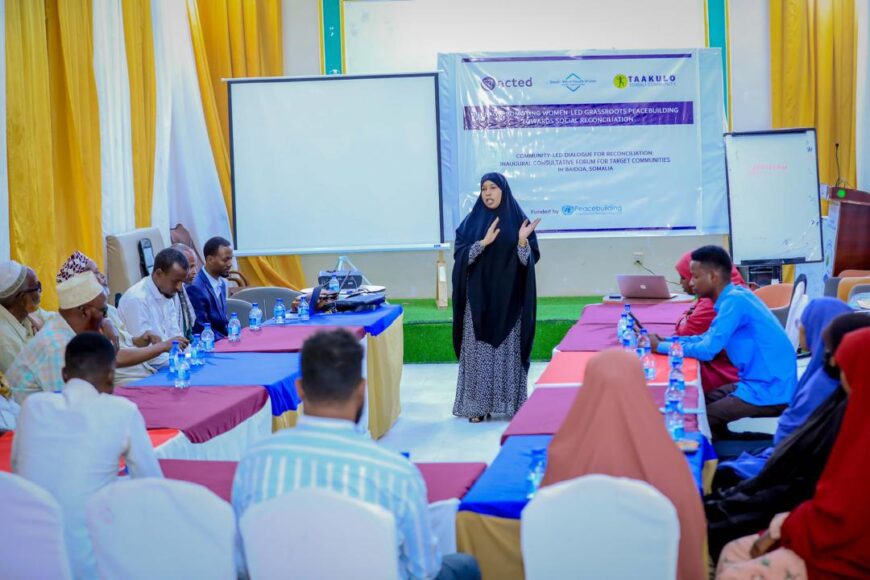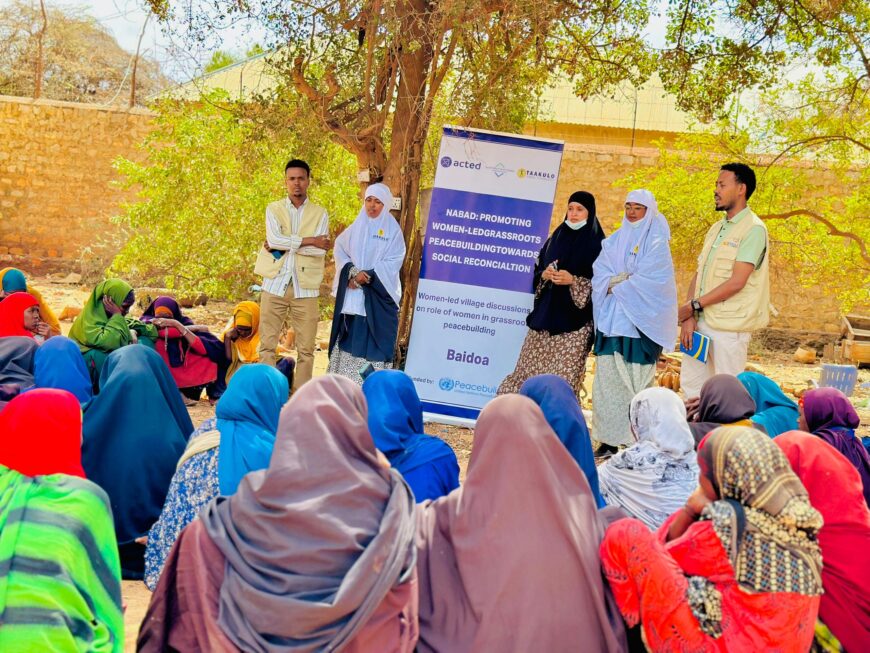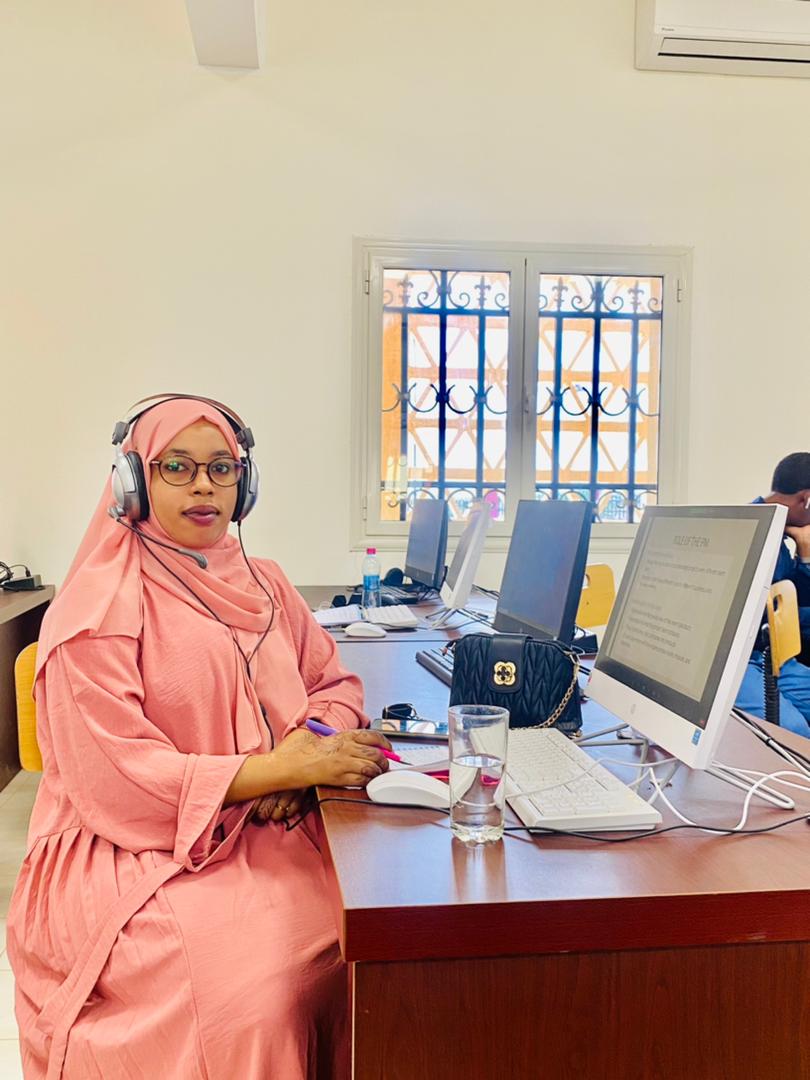In recent decades, Somalia has faced a multitude of difficult challenges, from economic hardships and political instability to widespread insecurity and natural disasters, leading to vital resources depletion. These adversities have fuelled local conflicts over power and resource distribution, spreading seeds of animosity among rival groups and further obstructing the country's development and social cohesion. These intertwined problems have significantly hindered Somalia's state building efforts. Furthermore, rooted patriarchal norms, have severely restrict women's participation in crucial socio-economic spheres, like decision making, governance process and peacebuilding initiatives, further exacerbating systemic inequalities and impeding overall progress.
Supported by United Nations Peacebuilding Fund (UNPBF), Acted, in partnership with two somalian NGOs – SADO (Social-life & Agricultural Development Organization) and Taakulo Somali Community, is empowering women and women-led CSOs (WLCSOs) to take action in peacebuilding through its project “NABAD: Promoting women-led grassroots peacebuilding toward social reconciliation in Somalia”. With a focus on promoting women’s pivotal role in peacebuilding and subsequent societal development, “NABAD” aims to empower them to take ownership of reconciliation efforts and resolve local conflicts autonomously. Specifically, the project targets 8 (WLCSOs) across eight targeted districts, evenly distributed between Southwest State (Baidoa, Berdale, Hudur and Barawe) and Jubaland (Kismayo, Dhobley, Garbahaarey, Dollow).

Women at the forefront of community reconciliation
The project, highly tailored to the context, is striving to cover identified gaps. To this end, the action commenced with a capacity building component aimed at equipping members of targeted WLCSOs, across Jubaland and Southwest State, with institutional management and peacebuilding training. This comprehensive approach not only enables them to effectively lead peacebuilding initiatives but also significantly enhances their overall organizational management, ensuring long-term sustainability.
The project’s second phase, inaugurated in March 2024, entails a 12-month peacebuilding campaign, including all previously targeted districts across Jubaland and Southwest States (Baidoa, Berdale, Barawe, Garbahaarey Kismayo, Hudur, Dollow and Dhoobley). This phase requires CSOs to apply the peacebuilding skills acquired during the capacity building training. Each CSO has identified a local conflict with a realist outlook for success and developed a roadmap of activities to lead the resolution process, emphasizing community driven efforts and choices. Additionally, this campaign aims to significantly promote the importance of women’s involvement in peacebuilding initiatives through various channels to engage a wide audience and ensure community participation. So far:
- 10 Village-led discussions, facilitated by local WLCSOs with support from Acted, SADO and Taakulo, have empowered and involved local communities in finding solutions to the identified conflicts.
- 6 radio sessions have been conducted to discuss the fundamental role of women involvement in socio- cultural activities and peacebuilding, highlighting their role as pacemakers and reaching a wider audience lacking internet access.
- 20 social media posts have been published to amplify ongoing efforts and raise awareness about women role in society.

Asma Dhayow*, a 25-year-old woman currently working as community engagement officer with one of the targeted WLCSOs, South-West Youth Vision, has been facilitating dialogues between rival clans in her village for about four years. However, so far her efforts have been hindered by limited capacity to effectively advocate for peace.
Through the NABAD Project, staff members of WLCSOs, like Asma, have been empowered with skills and resources to enhance their efforts in mediating local conflicts and building trust among conflicting parties, bringing them together to effectively discuss solutions.
As a woman, being a community engagement officer can be very challenging, but it’s also incredibly rewarding. Thanks to Acted and its donor, we are breaking barriers and showing women’s added value in peacebuilding initiatives.

Asma’s capacity has been enhanced, and she is now able to better organize and lead community dialogues, dismantling long-standing barriers and challenging traditional norms. Her contribution to peace and reconciliation has unveiled women’s contribution to peace and progress.
Thanks to the generous support from UNBPF, Acted and its partners have advocated the vital role of women in peacebuilding and socio-economic development. Through their dedication, women became integral drivers of locally-led peace initiatives. While challenges persist, Acted’s commitment to advancing women’s roles in Somali society remains steadfast. Together, we continue to pave the way for a future where women’s empowerment is synonymous with lasting progress and prosperity.